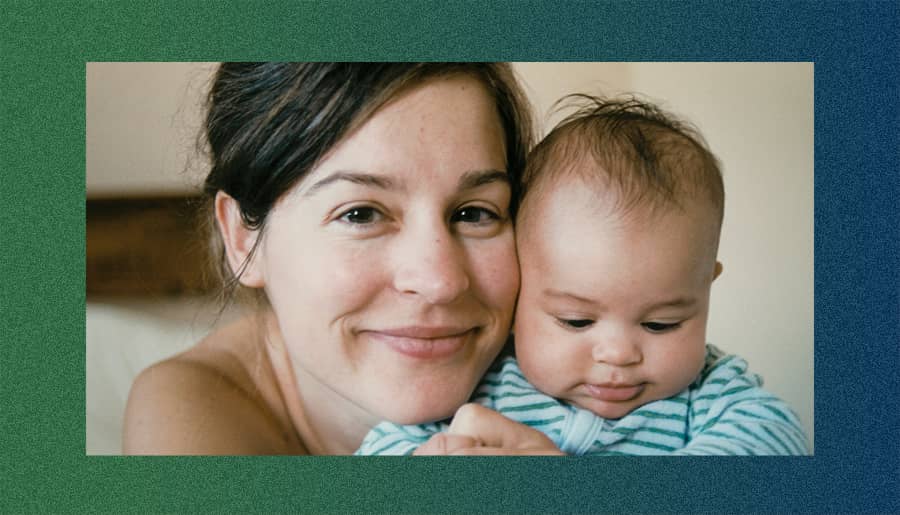While people of all walks of life have been greatly affected by the COVID-19 pandemic, as a paediatrician and parent, my heart goes out to all parents across the country who are struggling to make sense of the situation.
As many people would know, raising a baby is tough work. Not to mention, having limited interaction with social and support networks isn’t making this any easier.

I have noticed an increase in the number of parents putting off regular appointments or avoiding seeing a healthcare provider at all. New research commissioned by WaterWipes, to complement the launch of its 100% biodegradable baby wipe range, has provided a data-backed insight into some of the more concerning factors for parents.
- One in five parents have delayed taking their child to a doctor or other health specialist due to the COVID-19 pandemic
- Almost 30% of parents feel they have reduced access to their usual parent support networks
- 90% of parents are likely to turn to internet search engines to diagnose or treat their children’s minor health problems
As one of the most accessible resources, the internet can be a great starting point to find the answers to common health questions, however, it can also give parents a false sense of reassurance, or on the other end, heighten anxieties. So it is much safer to talk to your healthcare provider about any concerns you may have.
As we continue to adapt to living in a pandemic, I wanted to share some of my tips for parenting in a pandemic.
How Urgent Is Urgent?
One of the most common questions I’m asked is, how do I know when to call the doctor or when should we go directly to an emergency department? And this is made even more tricky by COVID and wanting to avoid exposure to potentially harmful situations.
While we live through this pandemic, it’s important to be able to confidently identify the difference between urgent and non-urgent medical conditions.
There are a few things to consider when understanding these categorisations.
What’s the Context?
Is that a concerning rash or has your baby just been wearing something that’s left a mark on them? Is your baby out of breath because they’re having an asthma attack or because they just exercised? Context is key to understanding urgency.
How Old Is Your Baby?
Generally, you should err on the side of caution with babies under six months as it’s critical that they receive the right care at the right time. It can also be more difficult to self-diagnose.
Do They Look Very Sick?
A toddler with a high fever that is running around playing is a lot less concerning than a toddler without a fever but who looks pale and is lying quietly with rapid breathing. Chat to your doctor to understand what signs to look for that may indicate a more serious illness.
How Are You Feeling?
I understand it can be frustrating when dealing with a baby’s medical complaints. Take a moment to step back and breathe — you can’t care for your baby properly if you’re stressed.
Dealing With Common Concerns
Teething (21%), nappy rash (20%) and baby eczema (19%) are considered to be some of the most frustrating health concerns for Aussie parents to deal with, according to the recent WaterWipes research.
The good news is, they’re actually all surprisingly simple to address at home. The best news? I’m going to give you some pro tips to make it easy.
Teething
As the name suggests, this one is all about giving your baby something to sink their growing teeth into. Try popping a silicone teething ring in the fridge (not the freezer) to provide some cool relief. A gum massage will also go a long way.
Nappy Rash
Nappy rash can be caused or aggravated by harsh chemicals in nappies or baby cleaning products. Although it can be tempting to turn to home remedies like coconut oil, it’s important to avoid adding more irritants to your baby’s delicate, inflamed skin. Choose clinically-tested cleansing products that have minimal harsh additives, and follow up with a medically-approved barrier cream.
Baby Eczema
While eczema can’t be cured, the symptoms can be managed with a regular skincare routine. You will need to see a healthcare professional for this one, because although simple moisturising is key, your baby may also require a prescription of a steroid containing cream. It’s also important to see a healthcare professional as they can rule out secondary bacterial or viral infections.
Babies don’t come with instruction manuals, so it’s normal to have a range of questions at any given time. Hopefully, these tips will help you out as you continue your parenting journey. As always, there is no substitute for medical care so please seek case-based advice from your trusted healthcare professional if you have any concerns.
Read more stories from The Latch and subscribe to our email newsletter.







